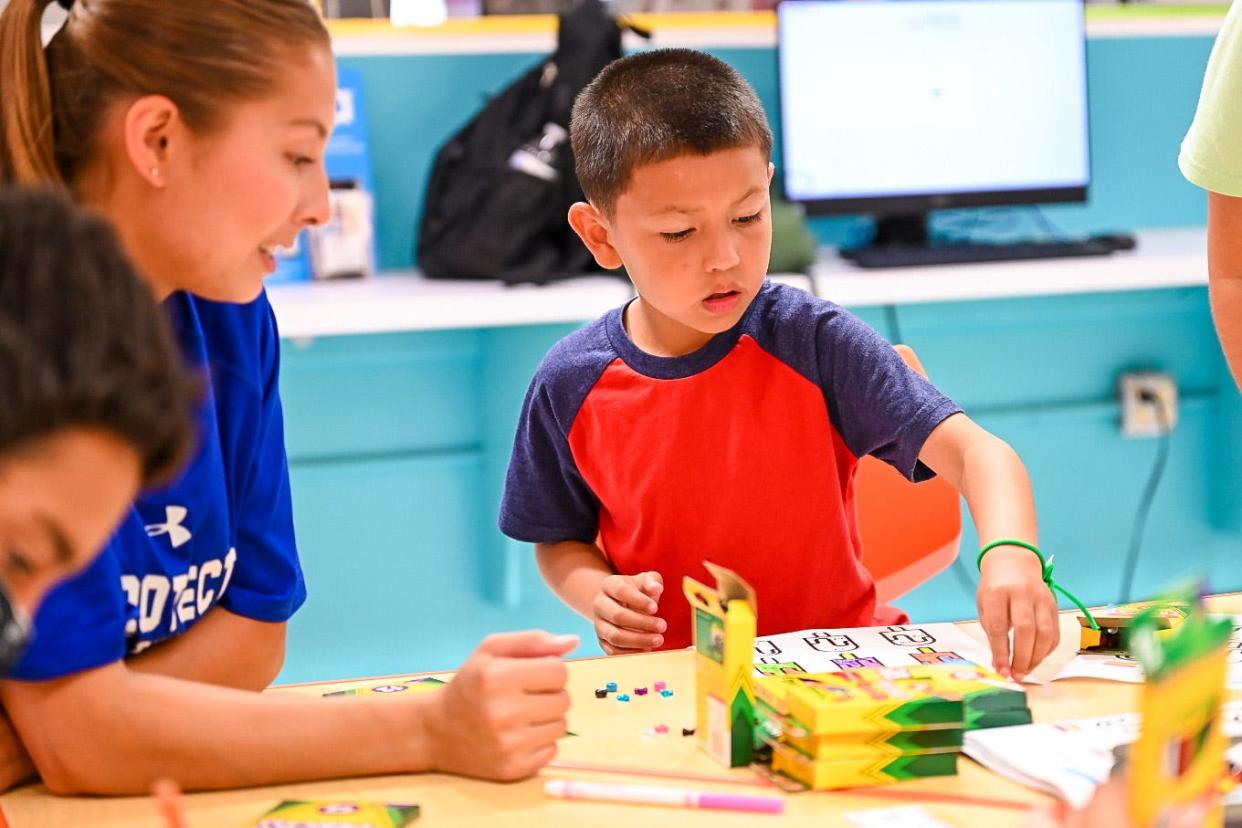Power of the Positive: There’s hope after terrible childhood experiences

We all know someone — a family member, friend, or coworker — who suffered childhood trauma and still managed to lead a productive and successful life.
Maybe that’s you.
Traumatic events, known as Adverse Childhood Experiences, can include abuse or neglect, parental substance abuse or mental illness and exposure to violence. Research reveals that more than 60 percent of us (myself included) have experienced at least one or two of these in our youth. Often the root is grounded in systemic issues such as poverty, discrimination, poor housing, or community disruptions. The pandemic exacerbated these issues.
The disheartening reality is children who suffer several traumatic events are more likely to have health problems including alcoholism, depression, heart disease, and diabetes. As a community we fight these complex issues through prevention, early intervention, and community awareness. While bad memories and hurt from our childhoods may never fully go away there is hope.
What makes the difference between those who overcome childhood adversity and those who don’t? Science holds a potential solution.
A new study uncovered that ALL childhood experiences matter — both the positive and negative. The findings showed children who experienced traumatic events had lower odds of adulthood depression or mental health issues based on the number of Positive Childhood Experiences they had. That means the positive experiences help diminish the impact of adversity. Somewhere deep in our souls, we already knew this, right?
WHAT MAKES THE DIFFERENCE?
There are four key experiences that are the building blocks for healthy living that make us more resilient during times of adversity. Reflect again on that person you know that faced adversity as a child. Did they have any one or more of these positive experiences?
Supportive relationships within the home, outside the family and with peers;
A safe, stable, equitable nurturing environment for living, playing, learning, at home and in school;
Social and civic engagement to develop a sense of belonging and connectedness and/or
Opportunities for social and emotional growth through play to develop self-awareness and self-regulation.
From my own experiences, it was my cousin, who also was my Sunday school teacher, that validated my thinking; my siblings and friends who were a buffer for a racially insensitive school environment; my participation in sports that was both stress relieving and a place to belong; and my parent’s demonstration of love that helped me most.
Remember: Your experiences in childhood are just one part of your life story. There are many ways to heal throughout your life.
Systemic issues take time to resolve. The stain of child abuse and neglect cannot be erased but we can reduce suffering in our families, our communities, and in ourselves by practicing and creating positive experiences each day.
HOW TO TAKE ACTION
We all must play a part in creating and supporting a resilient community full of opportunities for positive experiences. There are lots of ways to do this. Here’s some ideas:
Be someone’s supportive relationship.
Share kind words and supportive language during shared activities.
Work with neighbors to ensure children are always safe while playing outside.
Coach a sport, lead a scout group, volunteer or provide resources for extracurricular activities including the arts.
Model positive behavior during stressful situations.
Help children talk through conflict resolution and make a habit of reviewing the strengths and challenges of the day.
Support programs, policies and legislation that uplift families, promote supportive relationships, safe, stable, nurturing learning environments; and programs that address the needs of parents and their children.
However you choose to support the positive, know that you are creating a ripple effect that may have a lasting impact on many lives and our community.
Sherry Peterson is the Success By 6 Director for United Way of the Coastal Bend. Find parenting resources at uwcb.org/SB6 or visit Positiveexperience.org for more on Healthy Outcomes from Positive Experiences.
This article originally appeared on Corpus Christi Caller Times: Power of the Positive: There’s hope after terrible childhood experiences

